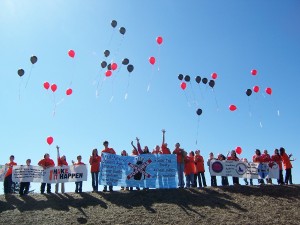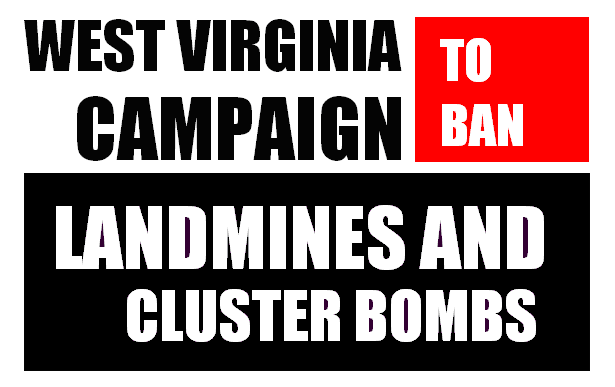
April 4th is recognized as a day for International Mine Awareness and Assistance in Mine Action. April 4th aims at raising awareness of dangers caused by landmines and explosive remnants of war. The International Campaign to Ban Landmines (ICBL) and its members worldwide mark 4 April with action.
The horrendous effect of landmines on communities throughout the world was witnessed by the founding member organizations of the ICBL, which joined the global movement in 1992 to address the problem. It soon became apparent that the only real solution to address the landmine crisis was a complete ban on antipersonnel mines. The ICBL, in close partnership with a small number of states, the ICRC, and the UN, therefore began the Ottawa Process that led to the creation of the Mine Ban Treaty in 1997. The Mine Ban Treaty has achieved a lot. States Parties to the Mine Ban Treaty are committed to complete the job by 2025.
But unfortunately landmines are still a global problem. For instance, over 60 states and territories are still contaminated by landmines, 35 states have not joined the treaty yet, an average of 18 people were killed or maimed by landmines every day in 2015, survivors’ needs have not been fulfilled, and, in 2015 landmines were used in over a dozen countries while funding to mine action has been decreasing.
Therefore, the international community must remain committed until the job is done by 2025. And all the 35 States not party should take action to outlaw landmines and to join the Mine Ban Treaty.
On April 4th, ICBL members in Asia, Africa, Americas, Europe and in the Middle East took action to mark the Mine Awareness Day. To name a few examples: In Afghanistan national campaigners are conducting media work and public awareness campaigns encouraging government and mine action actors to stay committed to finish landmine clearance by 2023, and to increase assistance to mine victims and persons with disabilities. The Italian campaign, in collaboration with the National Association of civil war victims, is convening a high level conference “Mine action: an investment in Humankind” at the Palazzo Giustiniani to highlight the needs of landmine victims and the importance of mine action. The conference’s keynote speaker is Mr. Alberto Cairo, a well-known humanitarian practitioner from the International Committee of the Red Cross’s Afghanistan program.
Campaigners in Belarus held round-table discussions with government authorities and civil society and organizing cultural and sports events to urge the government to complete destruction of stockpiled landmines and to raise awareness among students and public. In Senegal the Association of landmine survivors is provided free consultations for mine survivors in an affected district (Lyndiane) to facilitate access to medical care services. Campaigners in Sweden published an article and are sending out a press release urging the government of Sweden to increase its support to mine action.
To promote implementation of the Convention on Cluster Munitions and accession to the Mine Ban Treaty, national campaigners in Lebanon have been holding a series of events including media work, mine risk education marathon, puppet show with students of public schools, rally, football game with participation of survivors in different locations and in collaboration with government and other mine action actors. In Georgia, national campaigners plan to mark the Mine Awareness Day by holding a training session for cluster munition and mine survivors in Tbilisi. The event aims to provide an opportunity for survivors to discuss socio-economic inclusion challenges and ways to overcome them and also to share their stories.
Campaigners in Pakistan are reaching out to media outlets and conducting a social media campaign to raise awareness on impact of landmines and to urge the government of Pakistan to join the Mine Ban Treaty. In Vietnam national campaigners are holding a workshop to build capacities among landmine/cluster munitions/UXO victims and persons with disabilities in Quang Binh, a cluster munition affected province. The workshop will focus on importance of participation, peer support and it aims to improve business management skills among victims and persons with disabilities.
On 12 April Sudanese campaigners will join national mine action authorities to hold a big mine awareness event at the Friendship Hall in Khartoum. Cambodian campaigners joined the mine action authority to mark mine awareness day on 12 February where some 2,000 persons attended the event in Banteay Meanchey province. Somalian campaigners will mark the Mine Awareness Day together with national mine action authority. Campaigners will encourage the Somali government to submit its transparency report on implementation of the Mine Ban Treaty and Convention on Cluster Munitions.
In spite of the difficult situation in Yemen due to conflict and use of cluster munitions and landmines, national campaigners in Aden, Lahj and Abyan have been working to mark the Mine Awareness Day by providing mine risk education to students in six schools and by engaging them in awareness activities, in collaboration with national mine action authorities. National campaigners in Myanmar in partnership with some of the international mine clearance operators, are preparing for a big mine awareness event to encourage mine clearance, assistance to victims and accession to the Mine Ban Treaty and Convention on Cluster Munitions by the government of Myanmar. April 4th is observed by national mine action and victim assistance authorities, international organizations and the UN agencies. UN Secretary-General António Gueterres’s message for 4 April highlights the broader impact of mine action in “development” and urges the international community to consider mine action “at the top of the international agenda when negotiating peace”.
2017 is an important year for the ICBL and for the Mine Ban Treaty community. This October will mark 25 years since ICBL was founded and September will mark 20 years since the Mine Ban Treaty was adopted. Commemoration of these two historic and momentous dates this year will provide an opportunity for all of us to reinvigorate our work for a mine-free world by 2025.
